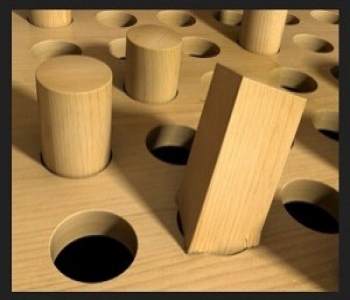Fall 2016
HUMA 888 Seminar in Interdisciplinary Studies I (3 credits)
Translation, Transformation
Tuesdays, 1:15 p.m. – 4 p.m., LB 619
Professor: Sherry.Simon@concordia.ca
TRANSLATION, TRANSFORMATION
(Provisional copy)
As a figure of thought and as a practice, translation stands for the shifts in meaning that inevitably occur when ideas and cultural products circulate. With the intensification of global traffic, translation is increasingly recognized as a key figure for the humanities. It highlights the gaps and dissonances across memories; it questions the nature of difference; it expresses the trauma of displacement. This course will use translation as a posture of inquiry by asking what it means to transport material from one idiom, discipline or medium into another. What changes when the mode of expression is altered? In particular, translation will become a key to exploring interdisciplinarity as a conversation across discourses and forms. The principle guiding this exploration is that any exchange involves mediation, critique, response, transformation.
The reading materials for the course will explore concept and practice, ethical reflection and imaginative exercise. Students will be invited to track down, explore or invent translation projects that are relevant to their own work. There will be a number of invited speakers in the course of the term.
Topics that will be explored will include: translation as memory, redress and cultural activism; the politics of translation (the forced translations of colonialism and imperialism, the imbalances in global cultural trade); the debate over world literature (Damrosch, Apter); the poetics of translation (Anne Carson); translation and migration, concepts of bordering; (Mezzadra, Cronin); multiple modernities;; retranslating systems of thought; travelling theory; translating images (visual arts, film); translation and digital humanities; cosmopolitan cities and sites of translation; translation as a critique of origin (Derrida, Sakai, Cassin, Berman, Liu).
Course objectives:
- To introduce students to a range of critical materials that will allow them to engage with the politics of difference as they play out in multicultural cities, to understand the implications of equivalence as an ideal and to understand cultures and identities as intrinsically translational. The broad reach of translation (as a poetic process, as a figure of political critique, as a mode of ethical subjectivity) will encourage connections across student projects.
- To involve participants in the collaborative production of interdisciplinary knowledge and encourage students to think of themselves as active researchers.
Winter 2017
HUMA 889 Seminar in Interdisciplinary Studies II (3 credits)
Diversity in Montreal
Thursdays, 1 p.m. – 4 p.m., H-1120
Professor: Jean-Philippe.Warren@concordia.ca
DIVERSITY IN MONTREAL
(Provisional copy)
Objectives
The issue of diversity in Montreal has a long history. The contacts with the indigenous peoples and the massive immigration of the nineteenth century have profoundly influenced local practices and institutions. Proudly displaying four flowers symbolizing four distinct groups of migrants (French, English, Scottish, and Irish), the Montreal flag bears testimony to this crossbreeding.
However, it seems that in the last 10 years, the issue of diversity has acquired a new urgency, as evidenced by the reasonable accommodation crisis (2006-2008) or the debate around the so-called Charter of Values (2013).
For some, Montreal offers an innovative and efficient integration model. To others, municipal initiatives, building on deficient provincial policies, are poorly adapted and betray significant bias. Beyond the traditions of Republicanism (France), the melting pot (United States) and multiculturalism (Canada), Quebec has offered since 1974 a formal policy of interculturalism which definition itself is very much open to debate.
Certainly, the dynamics created by the presence of a majority of Francophone Quebecers significantly impacts the local context. The questions of the dominant language (French), religious heritage (Catholic) and collective affirmation (national) confuse public deliberations and make dialogue difficult.
To nourish debates around diversity in Montreal, the seminar "Diversity in Montreal" intends to adopt a resolutely interdisciplinary perspective and will focus the discussion on issues specific to the metropolis. It is inviting researchers to a crossover that promotes a multiplicity of interpretative approaches. Also, the course will draw on the study of other cities considered more archetypal (Chicago, Los Angeles, Miami, Paris, London, Hong Kong, etc.).
Globally, the course aims to answer the following questions: How can one characterize the ethnic neighborhoods in Montreal? How can academics foster a better approach to diversity in Montreal? How can various disciplines make a contribution to scholarly knowledge and the public debate? What needs to be changed in order to arrive at a more inclusive polity? These questions - and many more - will lead classroom discussions and help students to understand the past and future evolution of "minority groups" in Montreal.
Thus one can say that the seminar’s objectives are threefold:
- Provide students with an opportunity to tackle the vast and complex question of diversity in Montreal and address the pressing issues of tolerance and inclusiveness using the tools and approaches of the humanities and social sciences. This will allow students to acquire a basic knowledge about communities in Montreal that is useful to their general education and their future career.
- Explore the issue of managing cultural and religious diversity. The students will be introduced to social and cultural strategies adopted by the various communities, and the different reactions that these strategies have generated within the mainstream society. The students, therefore, will comprehend the dynamics through which operates the recognition (or misrecognition) of minority groups.
- Introduce students to important theories on diversity in urban contexts that have been developed in Canada and abroad. Beyond the case of Montreal, the course aims to generate a global scholarly framework that can guide students in contexts that go much beyond the local situation.



